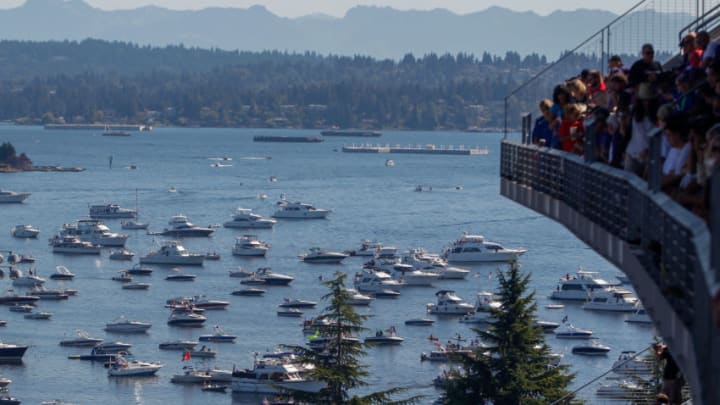The already morally-questionable process involving Seattle’s efforts to erect a venue that could bring the NHL into and/or the NBA back to the city has gone from “slim shady” to “super shady.”
Representatives for the OakView Group, who recently won the bid to renovate the Key Arena, and another group with plans to erect a new stadium in Seattle’s SoDo district, known as the SoDo group, are battling over matters that will ultimately be decided by the city council, like the vacation of part of Occidental Avenue and the re-appropriation of existing tax dollars.
A recent study into the two competing Seattle stadium project proposals concluded strongly in support of new construction, but the background of the study seriously taints the results. It could therefore further compromise the integrity of a process that already had grounds for criticism.
While attempts to woo city council members are ongoing, personnel at the University of Washington conducted a study into the potential economic impact of both proposals. The study concluded that the SoDo stadium — the new one — would return three times the amount of revenue to the city as a renovated Key Arena would.
That sounds fantastic for the SoDo group, but there’s one problem: The SoDo group financed the study. This is an excerpt from the study’s own analysis:
"On May 19, 2017 the SODO group hired Justin Marlowe, a professor of public finance at the University of Washington, to analyze the public finance dimensions of both proposals. Dr. Marlowe performed that analysis with the assistance of three Master of Public Administration students at the University of Washington: Grant Dailey, Angela Pietschmann, and Alex Schoemann. Ms. Pietschmann and Mr. Schoemann are Certified Public Accountants. This report outlines our methodology and main findings."
While there appears to be no reason to impugn the personal integrity of any of the individual researchers or to criticize their methodology, the simple fact that support for the study came from one of the two subjects of the study — and that same party stands to gain from a favorable analysis — seriously taints the usefulness of the study. If Seattle’s city council makes a decision based on this information, it also taints a process which has millions of taxpayer dollars at stake.
The SoDo group might have figured that if the city council could mislead them, they should be able to return that favor. In February of 2012, the city established a memorandum of understanding with the SoDo group. That MOU stated that the city wouldn’t consider any other stadium proposals until December 3 of this year on the contingency that the SoDo group would secure an NBA franchise for its stadium. Despite that agreement, the city went forward with taking bids to renovate the Key Arena in January.
That bidding process got shady itself, as the city made several moves like withholding details of the OakView Group’s proposal from the public while fully publishing the proposals of competitors. From those actions, it appeared that the OakView Group was the partner that the city council wanted all along. The “open bidding” process appeared to be a farcical venture to maintain some level of public accountability.
Next: 25 Richest NHL Players of All-Time
As all this drama unfolds, it’s obvious that the none of the hands of the involved parties are totally clean. If the Seattle city council, the OakView Group and the SoDo group were all in a room with Marshall Mathers and asked to self-identify the real shady ones, all three parties would have to stand up.
